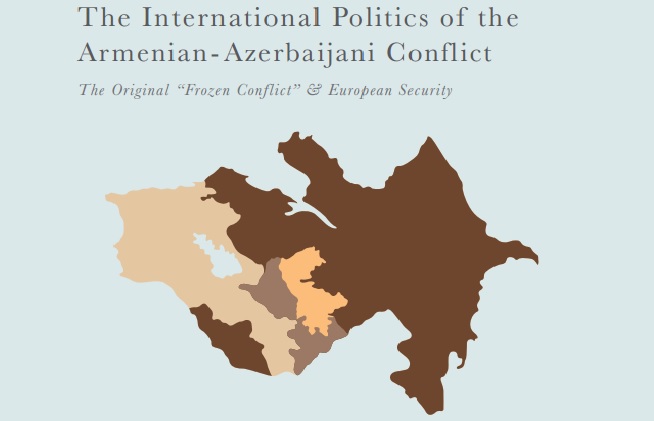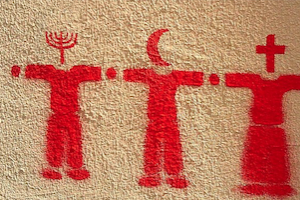The International Politics of the Armenian-Azerbaijani Conflict

Assassination in Ankara
Op-Ed, Foreign Affairs, January 3, 2017
Halil M. Karaveli, Assasination in Ankara
On December 19, Mevlut Mert Altintas, a Turkish police officer, assassinated Andrei Karlov, Russia’s ambassador to Turkey. His action was apparently meant as retribution for Russian bombings in eastern Aleppo, and he is the latest in a string of right-wing terrorists in Turkeywhose acts have served to draw Ankara back toward the West. Less than two weeks after the assassination, in the early hours of January 1, a gunman believed to have been affiliated with the Islamic State (ISIS) killed at least 39 people at an Istanbul nightclub. If such attacks continue, as they very likely will, they could undermine Erdogan's grip on power, which is what the wave of terror is all about, even if the perpetrators differ.
At this stage, it is impossible to know Altintas’ precise intention, whether he was a “lone wolf” or was directed by others, and what consequences the murder will have. But historical patterns offer some clues. First, Turkey has seen a long line of high-level assassinations carried out by the country’s right wing, made up of Sunni Islamists and Turkish nationalists, who have always been aligned in Turkish politics. The killers have typically had connections—a direct one in the case of Altintas, who was a riot police officer—with the country’s security agencies. Second, assassinations have tended to take place in particular geopolitical circumstances, namely whenever Turkey’s long-standing commitment to the Western security alliance has seemed to be in jeopardy. Read more
Azerbaijan’s Formula: Secular Governance and Civic Nationhood
Erdogan’s Journey – Conservatism and Authoritarianism in Turkey
Essay, Foreign Affairs, November/December 2016 Issue
Halil M. Karaveli, Erdogan's Journey
What happened to Recep Tayyip Erdogan? The Turkish president came to power in 2003 promising economic and political liberalization. But under his rule, Turkey has instead moved in a profoundly illiberal, authoritarian direction—although not toward repressive Islamism, which some feared was Erdogan’s true agenda, given his background in Islamist politics. Rather, Erdogan has become something more akin to a traditional Middle Eastern strongman: consolidating personal power, purging rivals, and suppressing dissent.
Over the summer, it briefly appeared as if Erdogan might have overreached, when a group of military officers attempted to topple him—at the direction, Erdogan has insisted, of his erstwhile ally turned bitter foe Fethullah Gulen, an influential Turkish cleric based in the United States. But when the plotters struck, Erdogan was able to quickly rally support inside the armed forces and among the broader public and managed to put down the coup attempt with surprising ease. A subsequent crackdown has been swift and merciless: the government has jailed tens of thousands of alleged Gulenists, conducted a sweeping purge of the army and the state bureaucracy, shut down media outlets, and suspended thousands of academics. Erdogan’s response to the coup attempt has demonstrated that the president’s grip on power remains stronger than even many of his fiercest critics had assumed.
No one could have foreseen the coup or its aftermath. But even long before those events, it should have come as no surprise that Erdogan had failed to live up to the expectations of many liberals in Turkey and elsewhere who had initially hailed his ascent as a sign of progress. Erdogan never really aimed to make Turkey an Islamic state, but he also never wanted to liberalize it. Read more
The Death of Atatürk's Vision – Svante Cornell briefs the Middle East Forum
Middle East Forum, September 6, 2016
Svante E. Cornell, director of the Central Asia-Caucasus Institute & Silk Road Studies Program at the Johns Hopkins University, briefed the Middle East Forum in a conference call on August 30, 2016.
The failed July 15 military coup in Turkey brought to a head a long-standing struggle between President Erdoğan's overtly anti-Western approach and the alleged pro-Western orientation of the Fethullah Gülen movement led by the Pennsylvania-based Turkish preacher.
On the face of it, Erdoğan emerged as the coup's undisputed winner because he survived the challenge and has become more assertive than ever. Yet the mass purges he unleashed have not only dented his international standing but have created a void in Turkey's public life that will make his rule increasingly tenuous. Hence the regime's conspiracy theories holding Washington culpable for the coup and hence its Syria intervention as a show of strength and an attempt to restore national pride.
Similarly, while Ankara's rapprochement with Moscow is in keeping with its anti-Western tendencies, the pragmatism of the Turkish leadership is likely to prevent it from breaking with the West. This pragmatism has also led to the normalization of relations with Israel, a tactical move to counterweigh Ankara's failed bid for regional leadership, while persisting in its anti-Semitic and Islamizing policies.
This pragmatic manifestation notwithstanding, Erdoğan's attempt to consolidate power while flouting the constitution and the most basic human rights is setting the stage for a chaotic and unstable Turkey. As there are no active pro-Western political forces remaining in Ankara, it is no longer a place that the West can work with to solve the Middle East's daunting problems. Policies need to be adjusted accordingly.





